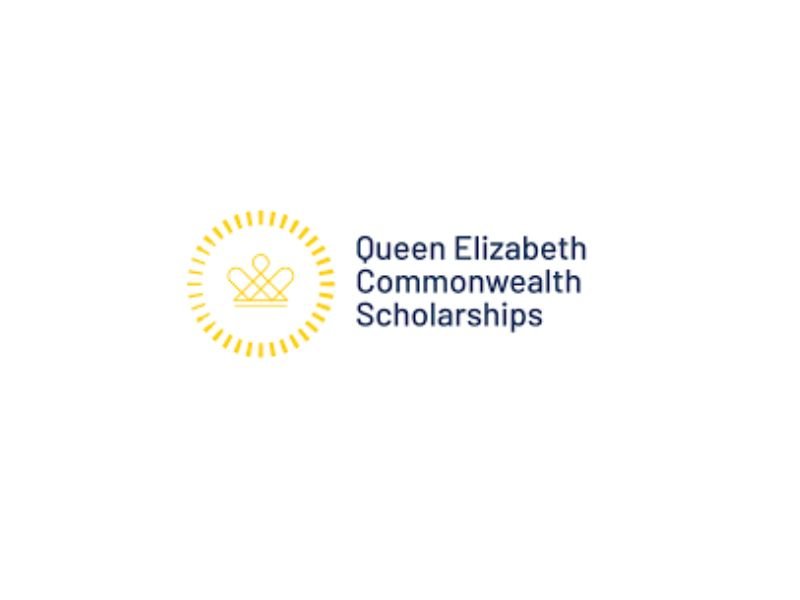Imagine studying for a Master’s degree in a vibrant Commonwealth country, fully funded, while immersing yourself in a new culture and building a global network that lasts a lifetime. The Queen Elizabeth Commonwealth Scholarship (QECS) offers this transformative opportunity to talented students from Commonwealth nations, empowering them to drive positive change in their communities.
This prestigious scholarship, managed by the Association of Commonwealth Universities (ACU), is more than just financial support—it’s a gateway to academic excellence, cultural exchange, and leadership development. In this article, we dive deep into the QECS, exploring its benefits, eligibility, application process, and more, to help you seize this life-changing opportunity.
What is the Queen Elizabeth Commonwealth Scholarship?
The Queen Elizabeth Commonwealth Scholarship is a fully funded program designed to support outstanding students from low- and middle-income Commonwealth countries in pursuing a two-year Master’s degree. Established to foster academic collaboration and cultural exchange, the QECS enables scholars to study at leading universities across the Commonwealth, excluding high-income nations like the UK, Canada, and Australia.
The scholarship aims to equip scholars with the skills and knowledge to address global challenges, aligning with the United Nations Sustainable Development Goals (SDGs). With two application cycles annually—typically opening in November/December (Cycle 1) and March/April (Cycle 2)—the QECS supports a diverse range of academic fields, from healthcare to sustainable development, ensuring scholars can pursue their passions while making a meaningful impact.
Eligibility Criteria for QECS
To qualify for the Queen Elizabeth Commonwealth Scholarship, applicants must meet specific requirements:
-
Citizenship: Candidates must be citizens or hold refugee status in a Commonwealth country and must apply to study in a low- or middle-income Commonwealth nation other than their home country.
-
Academic Background: A minimum of an upper second-class (2:1) undergraduate degree or equivalent is required. For certain programs, such as those in South Africa, a South African Qualifications Authority (SAQA) equivalence may be necessary.
-
Age: There is no upper age limit, making the scholarship accessible to candidates at various stages of their careers.
-
Commitment to Impact: Applicants must demonstrate a dedication to creating positive change in their communities and contributing to global challenges.
These criteria ensure that the scholarship supports driven individuals with the potential to become future leaders. Candidates are also required to apply for admission to their chosen university separately, as the QECS application does not guarantee university acceptance.
Benefits of the Queen Elizabeth Commonwealth Scholarship
The QECS is a fully funded opportunity, covering all major expenses to allow scholars to focus on their studies and personal growth. Key benefits include:
-
Full Tuition Coverage: All tuition fees for the two-year Master’s program are fully covered.
-
Living Allowance: A stipend is provided to cover living expenses, ensuring financial stability during the study period.
-
Return Economy Flights: Scholars receive round-trip airfare to and from their host country.
-
Arrival Allowance: A one-time allowance is provided to help scholars settle into their new environment.
-
Research Support Grant: Available upon request and approval, this grant supports research-related activities, enhancing academic outcomes.
Beyond financial support, the QECS offers a transformative experience, allowing scholars to immerse themselves in a new culture, collaborate with global peers, and build a lifelong network within the Commonwealth. This holistic approach fosters personal and professional development, empowering scholars to drive change in their home countries and beyond.
Application Process for QECS
Applying for the Queen Elizabeth Commonwealth Scholarship is straightforward but requires careful preparation. Here’s a step-by-step guide:
-
Review Eligible Programs: Visit the ACU’s QECS homepage to explore participating universities and eligible courses. Only listed programs qualify for funding.
-
Research Universities: Check the host university’s website for specific course details, entry requirements, and application deadlines.
-
Create a MyACU Account: Register on the myACU portal to access the QECS application form.
-
Complete the QECS Application: Submit a detailed application, including a personal statement addressing why you chose the course, university, and country, and how your studies align with your career goals and the SDGs.
-
Apply to the University: Submit a separate application for admission to your chosen university, noting any additional requirements like SAQA equivalence for South African institutions.
-
Submit References: Provide one academic reference and, if necessary, a professional reference in PDF, JPG, or PNG format.
-
Monitor Deadlines: Cycle 1 (for courses starting July–October) typically closes in January, with outcomes announced by July. Cycle 2 (for courses starting January–February) closes around May, with outcomes by October.
Applicants are encouraged to apply only once per cycle but may reapply in subsequent cycles for different countries or programs. Thoroughly reviewing the ACU’s application guidance and FAQs is essential to avoid common pitfalls.
Participating Universities and Online Learning Opportunities
The QECS supports in-person, on-campus Master’s programs at ACU member universities in low- and middle-income Commonwealth countries, such as Fiji, Mauritius, Papua New Guinea, South Africa, and Sri Lanka. However, the scholarship does not fund online or distance learning programs, as its focus is on cultural exchange through physical immersion in the host country.
For those interested in online education, many Commonwealth universities offer flexible Master’s programs that align with QECS-eligible fields, though these are not covered by the scholarship. Below is a list of 10 reputable institutions offering online Master’s programs that complement the academic focus of QECS, ideal for those exploring alternative study options:
-
University of South Africa (UNISA): Offers online Master’s degrees in fields like public health and environmental management, aligning with QECS sustainable development goals.
-
University of the Witwatersrand (Wits): Provides online postgraduate programs in business administration and public health, fostering leadership skills.
-
Open University of Sri Lanka: Delivers online Master’s degrees in education and development studies, emphasizing community impact.
-
University of Mauritius: Offers distance learning programs in sustainable development and technology, complementing QECS themes.
-
University of the South Pacific (Fiji): Provides online Master’s programs in climate change and Pacific studies, ideal for environmental scholars.
-
University of Nairobi (Kenya): Features online postgraduate courses in project management and development studies.
-
University of Lagos (Nigeria): Offers distance learning Master’s programs in business and public administration.
-
Bangladesh Open University: Provides online Master’s degrees in education and social sciences, supporting community-driven change.
-
Indira Gandhi National Open University (IGNOU, India): Offers a wide range of online Master’s programs in areas like rural development and environmental science.
-
University of Papua New Guinea: Provides online postgraduate courses in governance and public policy, aligning with QECS leadership goals.
While these institutions offer online programs, QECS applicants must pursue in-person courses at eligible host universities to qualify for funding. Always verify course eligibility on the ACU website before applying.
Tips for a Successful QECS Application
Crafting a standout QECS application requires strategic planning and attention to detail. Here are key tips to enhance your chances:
-
Tailor Your Personal Statement: Clearly articulate why you chose the specific course, university, and country, linking them to your career goals and the SDGs. Highlight past experiences that make you a strong candidate.
-
Demonstrate Community Impact: Emphasize your commitment to creating positive change in your home community, with specific examples of how you’ll apply your skills post-scholarship.
-
Research Thoroughly: Show evidence of researching your chosen university and program, such as unique course features or faculty expertise.
-
Secure Strong References: Choose referees who can attest to your academic or professional capabilities and align their letters with your application goals.
-
Meet All Deadlines: Submit both the QECS and university applications on time, accounting for any additional requirements like application fees or SAQA equivalence.
By presenting a compelling case for your academic and leadership potential, you can stand out in the competitive selection process.
Impact of QECS on Scholars and Communities
The Queen Elizabeth Commonwealth Scholarship goes beyond academic achievement, fostering global leaders who drive meaningful change. Scholars gain advanced knowledge and skills, often in fields like healthcare, education, or sustainable development, which they apply to address challenges in their home countries. The cultural exchange component broadens perspectives, enabling scholars to collaborate across borders and contribute to the Commonwealth’s shared goals.
For example, alumni have spearheaded initiatives in climate resilience, public health, and education reform, leveraging their global networks to amplify impact. By investing in talented individuals, the QECS strengthens the Commonwealth’s capacity to tackle pressing global issues, creating a ripple effect of positive change.
Conclusion
The Queen Elizabeth Commonwealth Scholarship is more than a financial award—it’s a transformative journey that empowers you to grow academically, culturally, and professionally. By studying at a leading university in a low- or middle-income Commonwealth country, you’ll gain the skills, experiences, and networks to shape a brighter future for yourself and your community.
Whether you’re passionate about sustainable development, healthcare innovation, or social change, the QECS offers a platform to turn your vision into reality. Start your application today, and take the first step toward becoming a global changemaker with the Queen Elizabeth Commonwealth Scholarship.









